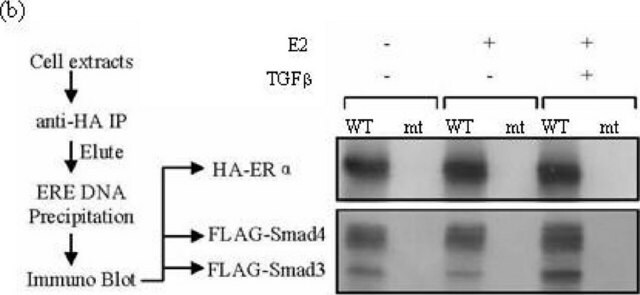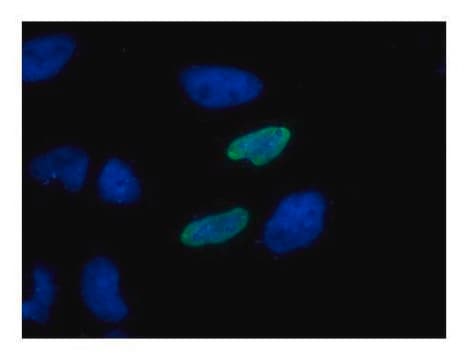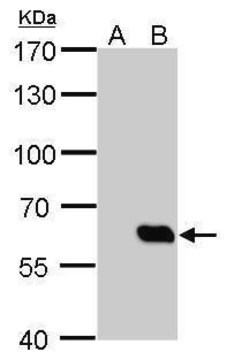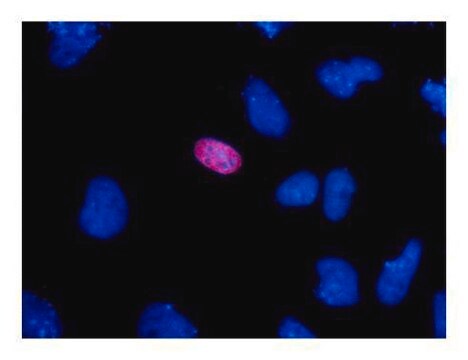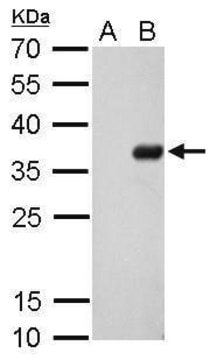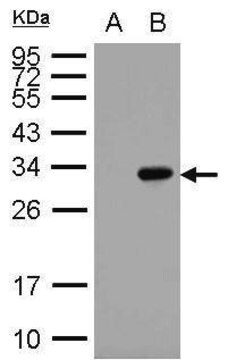SAB2702217
Monoclonal Anti-HA tag antibody produced in mouse
clone GT4810, affinity isolated antibody
Synonym(s):
Mouse Anti-hemagglutinin
About This Item
Recommended Products
biological source
mouse
Quality Level
conjugate
unconjugated
antibody form
affinity isolated antibody
antibody product type
primary antibodies
clone
GT4810, monoclonal
form
buffered aqueous solution
concentration
1mg/mL
technique(s)
immunoprecipitation (IP): suitable
indirect immunofluorescence: suitable
western blot: 1000-10000
isotype
IgG2a
1 of 4
This Item | SAB2702249 | SAB2702227 | SAB2702378 |
|---|---|---|---|
| conjugate unconjugated | conjugate unconjugated | conjugate unconjugated | conjugate unconjugated |
| biological source mouse | biological source mouse | biological source mouse | biological source mouse |
| antibody form affinity isolated antibody | antibody form affinity isolated antibody | antibody form affinity isolated antibody | antibody form affinity isolated antibody |
| isotype IgG2a | isotype IgG2b | isotype IgG2a | isotype IgG1 |
| form buffered aqueous solution | form buffered aqueous solution | form buffered aqueous solution | form buffered aqueous solution |
Immunogen
Application
Features and Benefits
Other Notes
Physical form
Disclaimer
Not finding the right product?
Try our Product Selector Tool.
Storage Class Code
12 - Non Combustible Liquids
WGK
nwg
Flash Point(F)
Not applicable
Flash Point(C)
Not applicable
Certificates of Analysis (COA)
Search for Certificates of Analysis (COA) by entering the products Lot/Batch Number. Lot and Batch Numbers can be found on a product’s label following the words ‘Lot’ or ‘Batch’.
Need A Sample COA?
This is a sample Certificate of Analysis (COA) and may not represent a recently manufactured lot of this specific product.
Already Own This Product?
Find documentation for the products that you have recently purchased in the Document Library.
Customers Also Viewed
Our team of scientists has experience in all areas of research including Life Science, Material Science, Chemical Synthesis, Chromatography, Analytical and many others.
Contact Technical Service